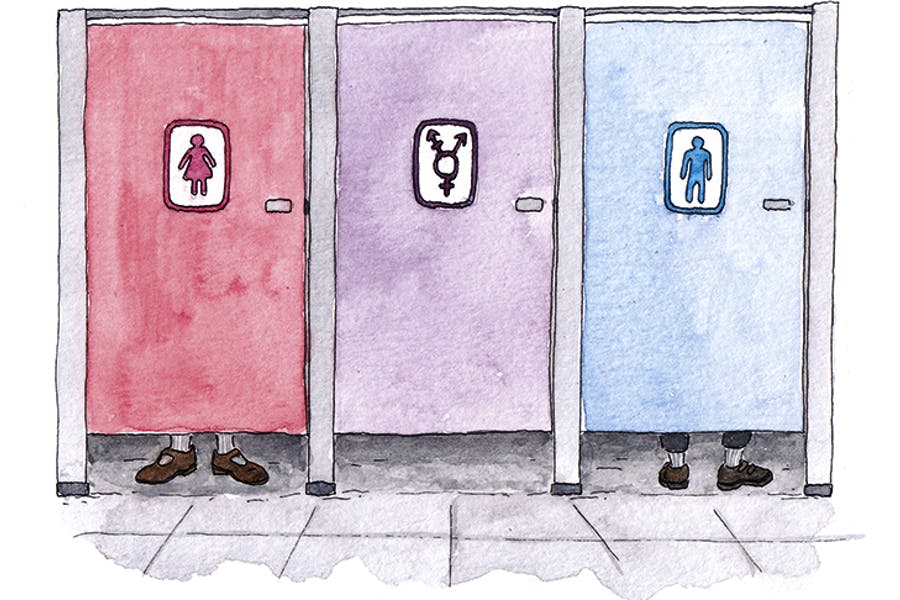Designs for a tower block in Ealing just for women – the first in Britain – have been given the thumbs up by planners. On the surface of it, the scheme, proposed by the Women’s Pioneer Housing association, which was founded in the 1920s by women’s rights campaigners, sounds rather good. It offers a permanent, refuge-style living arrangement for vulnerable and poor women, including victims of domestic violence. Some utopian touches are in the offing too: deeper balconies designed to keep prying eyes away, slightly lower kitchen work surfaces, even ventilation systems suited for menopausal women (presumably the option to open the window wide on the 15th floor will be limited). But scratch the tiniest bit deeper and the strong feminist carapace falls away to reveal shoddy thinking.
The problem with a block like this is the way it further balkanises gender, formalising the apparent inability of men and women to live or work together. There is some truth, of course, in the fact that men can be dangerous to women, and that single-sex spaces can confer valuable feelings of safety and wellbeing. For this reason women’s prisons, hospital wards, changing rooms, and some swimming facilities should remain single-sex, in accordance with reality, not fanciful political ideas. In sport, sex segregation is the only way to maintain fairness.
But funding for a women-only housing block seems more to do with the politics of pessimism about women’s capabilities and prospects than about the basics needed to ensure safety. The implication is that women need a kind of prison or ward in which to live permanently – even if they have their own flats, their own locks, their own keys. And do women really need lower worktops? Given that the average height of women is now 5 ft 4 and many are now weight-lifting at home and in no-frills gyms, this seems a touch outdated.
Thanks to the trans movement, the division between men and women has only hardened up in recent years, becoming more like the Berlin Wall than the Welsh border. Trans ideologues have weaponised a fairly uninteresting but basic fact – that biology exists and matters a great deal indeed in some cases. In doing so they have made the whole discourse about gender highly polarised, forcing women to suddenly defend the barest facts of their existence: such as the capacity for having and nursing babies and being slower on average than men in elite sport – and physically weaker in general. In being forced to engage with the madness insinuated by those who have caught the post-modern, post-structuralist, intersectional bug, we have had to to think constantly about the differences between men and women, the dangers posed by men to women, the relative physical weakness of women, and so on. It’s all very unfortunate and should have been quite unnecessary. But it happened, and now the Ealing block strikes me as a bricks and mortar manifestation of it all.
Of course, the idea of women-only spaces is hardly new and, in religious and conservative parts of the world, where women face appalling discrimination, they are very much the norm. Indeed, Sharia law enforces the very strictest separation between the sexes, while in places like Japan and India, a mixture of brutal conservatism in attitudes about women combined with the subsection of men whose raison d’être seems to be to harass and threaten them, there are women-only train carriages. If in Britain we start to think that women must have their own buildings, why not apply the same logic train carriages? What about sex-segregated shopping, like in many Arab countries? It’s a worryingly regressive path.
Funding for a women-only housing block seems more to do with the politics of pessimism about women’s capabilities
Also worthy of a long pause for thought is the idea that in 2023 and beyond, women need subsidised, single-sex housing because of a general vulnerability: be it physical, economic, mental. The latter may be true, especially for those who have been victimised by men, but the first two ought to be scrutinised. Girls do better in school than boys by a long chalk, nor do they necessarily enter the job market as disadvantaged compared to poor young men – though it’s true women tend to go for low-paid caring jobs. Should they become mothers, is it certain that their prospects are inevitably doomed by a cruel and unfair society? Perhaps not; after all, in free and relatively stable Britain, woman and mother or not, there are always ways to thrive.
Rather than a monument to justice, then, this tower block is a monument to a belief in women’s inherent weakness, the unfairness of trans ideology, and doubt in the sexually liberal basis of our society.







Comments